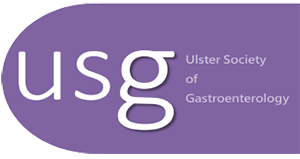Sex Hormone Receptor Expression In Oesophageal Adenocarcinoma And Recurrence And Survival: A Retrospective Cohort Study
Authors
ÚC McMenamin1, J Trainor2, HG Coleman1,4, DT McManus2, BT Johnston3, RC Turkington4Departments / Institutions
1 Cancer Epidemiology Research Group, Centre for Public Health, Queen’s University Belfast, Belfast, Northern Ireland. 2 Department of Pathology, Belfast Health and Social Care Trust, Belfast, Northern Ireland. 3Department of Gastroenterology, Royal Victoria Hospital, Belfast Health & Social Care Trust, Belfast, Northern Ireland. 4Centre for Cancer Research and Cell Biology, Queen’s University Belfast, Belfast, Northern Ireland.Publication Date
Autumn 2018Introduction
A striking epidemiological feature of oesophageal adenocarcinoma
(OAC) is its unexplained male predominance, suggesting a protective
effect for oestrogens, but few studies have investigated expression of
sex hormone receptors in OAC.
Aims
A striking epidemiological feature of oesophageal adenocarcinoma
(OAC) is its unexplained male predominance, suggesting a protective
effect for oestrogens, but few studies have investigated expression of
sex hormone receptors in OAC.
Methods
We identified 148 OAC patients who underwent neo-adjuvant
chemotherapy prior to surgical resection between 2004-2012 at the
Northern Ireland Cancer Centre. Immunohistochemical expression
of ERα, ERβ and AR was determined and Cox proportional hazards
regression was used to calculate hazard ratios (HR) and 95%
confidence intervals (CI) for associations between sex hormone
receptor expression and overall survival, cancer-specific survival
and recurrence-free survival. Sensitivity analysis was conducted
restricting analysis to patients with gastro-oesophageal junctional
(GOJ) cancer.
Results
A low proportion of OAC tumours stained positive for ERα (4%)
and AR (3%) while one third stained positive for ERβ (31%). After a
mean follow-up of 3 years (max 9 years), no significant associations
were seen for ERα, ERβ or AR expression and OAC recurrence or
survival. A borderline significant reduction in mortality was observed
for positive ERβ tumour expression, when restricting to patients with
GOJ cancer (adjusted HR 0.58, 95% CI 0.33, 1.03, p=0.06).
Conclusion
In the largest study to date, we found little evidence of ERα or AR
expression in OAC. We observed moderate expression of ERβ and
there was suggestive evidence that its expression was associated with
improved survival in GOJ cancer patients.
Latest News
Gastroenterology FK Meeting Provision and Challenges
Posted on: 2nd April 2021Latest Event
There are no up-coming events.E-Publications
Download our latest Documents


